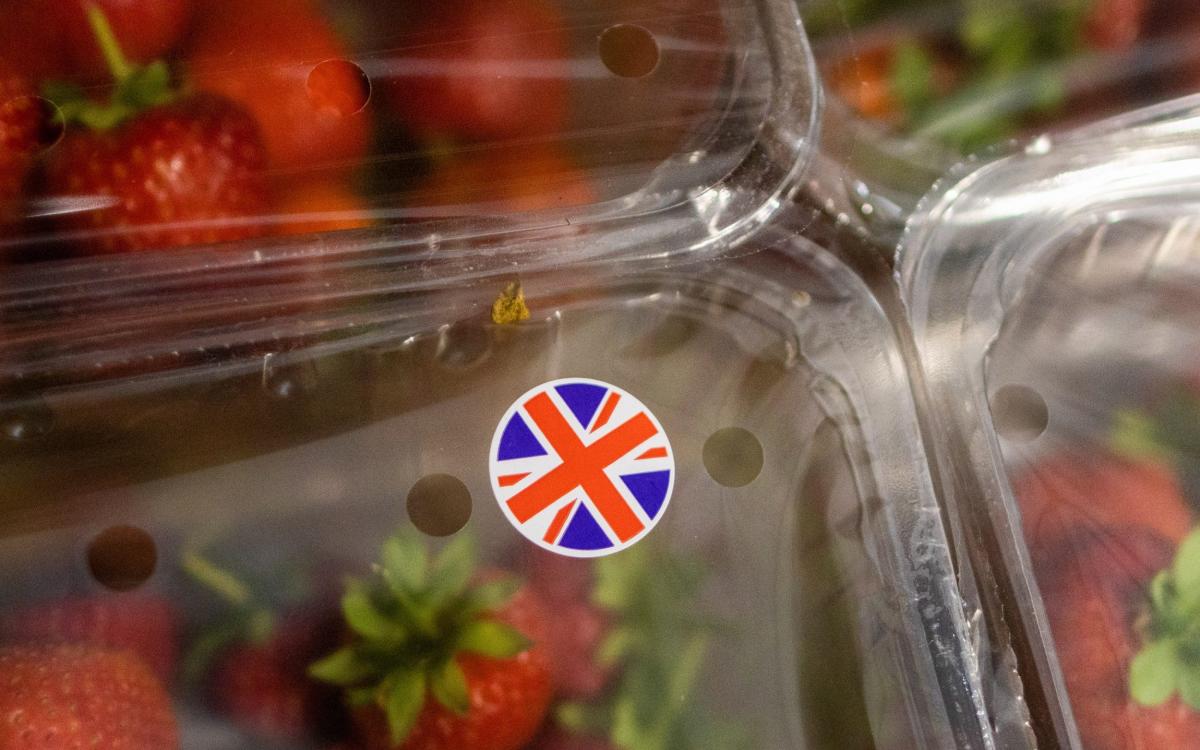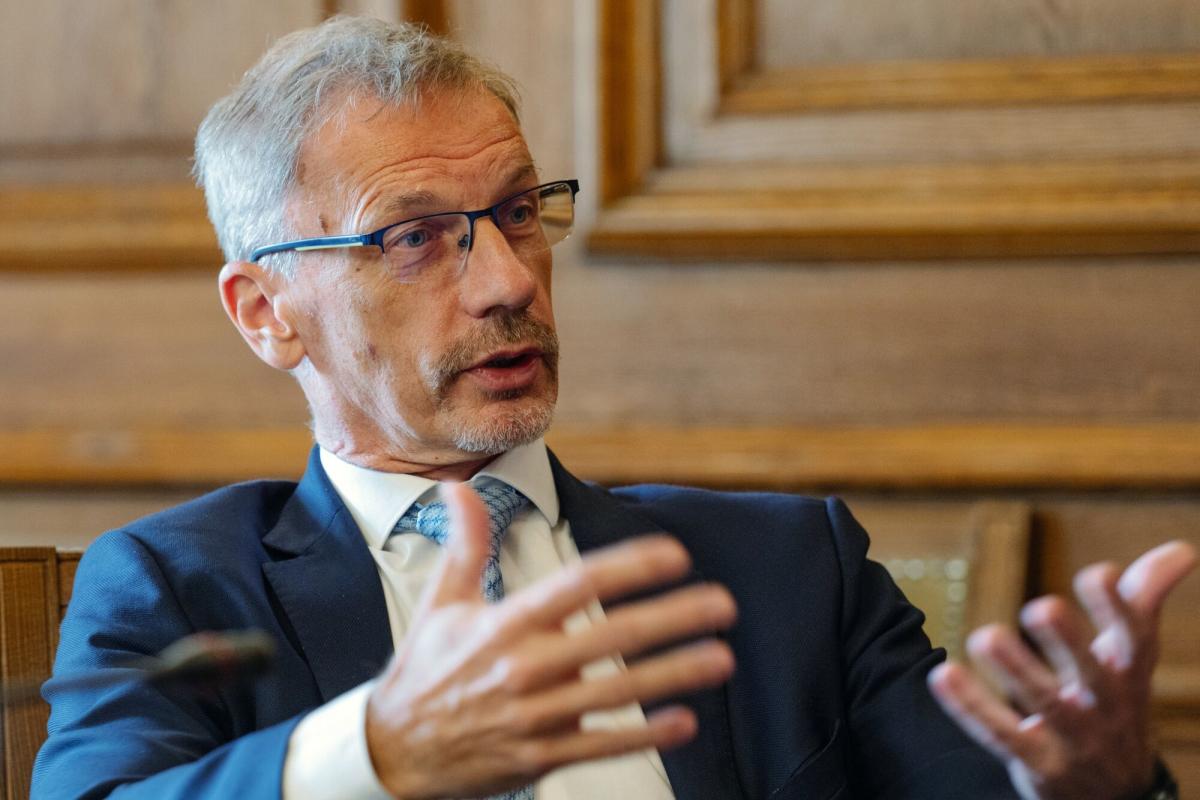
A new “grocery tax” designed to achieve the Government’s net zero targets will push up household shopping bills by up to £1.4 billion a year, The Telegraph can reveal.
Ministers have been accused of “quietly” passing legislation that will see as much as £56 added to household costs annually, according to the Government’s calculations.
The green levy – which will see retailers and manufacturers charged per tonne of packaging materials they use – is aimed at helping the UK to reduce waste and meet its net zero targets.
Under the scheme, they will be charged more for using plastic wrapping than for using paper or cardboard.
ADVERTISEMENT
But critics have warned that the measure will “push up food costs for every family” while imposing red tape on businesses.
Families have already been hit by rising food prices in recent years, with inflation rising for the second month in a row last week in the wake of Rachel Reeves’s “Budget for Growth”.
According to the impact assessment of the incoming policy, published by the Department for Environment, Food and Rural Affairs (Defra), the new tax will lead to “retail sales increases of around £1.4 billion” in the first year.
The Government expects that in a “central scenario” 85 per cent of the costs will be passed on to consumers, rising to 100 per cent in a “high scenario”.
‘Another growth-destroying measure’
However, the British Retail Consortium (BRC) believes that £1.4 billion is an underestimation of the costs faced by retailers and the true cost will be closer to £2 billion.
ADVERTISEMENT
The scheme – formally called the Extended Producer Responsibility (EPR) – will increase household bills by £28 a year in the low scenario, £48 in a central scenario or up to £56 in the high scenario, according to the government forecasts.
Lord McKinlay, a Tory peer and chair of the Net Zero Scrutiny Committee, said: “The rapidly introduced, yet little noticed ‘grocery tax’ legislation has quietly landed.
“It heaps more than a billion pounds of new and unnecessary costs on consumers, but as ever when government departments estimate implementation costs, these are often hopelessly underplayed.
“It needs to be called out for what it is: yet another net zero tax which adds to consumer cost inflation, and further adds to the administrative burden on UK businesses. Another growth-destroying measure by an inept Government.”
The scheme effectively places a tax on manufacturers and retailers for the cost of collecting and disposing of packaging waste, which is currently borne by local authorities and funded by council tax.
ADVERTISEMENT
However, there is no suggestion that councils will reduce taxes imposed on residents when they begin benefiting from the funds.
The levy was originally devised by Michael Gove during his time as environment secretary. But after a backlash from Tory MPs and retailers over the costs it would add to household shopping bills, the Conservative government put the scheme on hold.
‘Obsessed with green politics’
Earlier this month, secondary legislation was passed that will see the levy come into legal force on Jan 1 2025, with the first charges for retailers due to be rolled out in autumn 2025.
Lord Frost said: “Rishi Sunak’s government came up with this plan and then rightly realised it was too expensive to introduce. Keir Starmer’s Government doesn’t care about that.
“They are obsessed with green politics and are quite happy to impose these new burdens on business which will boost inflation and push up food costs for every family. Starmer claims to care about growth but his actions show the opposite.”
ADVERTISEMENT
On Friday, Defra published a schedule of “base fees” to indicate how much retailers will be charged for the collection and disposal per tonne of packaging in 2025-26, the first year of the scheme. The highest-cost material is plastic, for which they will be charged £485 per tonne, followed by “fibre-based composite” at £455 per tonne.
Meanwhile, paper or board packaging is the cheapest, costing £215 per tonne, with materials such as bamboo or hemp costing £280 per tonne.
The Government’s impact assessment of the policy also admits it will drive up inflation by 0.07 per cent.
‘World-class recycling system’
The Bank of England warned last month that Britain is already facing a fresh spike in inflation as Rachel Reeves’s tax-and-spend Budget piles extra pressure on households and businesses.
In his assessment of the Chancellor’s maiden Budget, governor Andrew Bailey said a “substantial” increase in public spending and tax changes that “clearly raise the cost of employment” will drive prices higher over the next three years.
Jim Bligh of The Food and Drink Federation said the new regulations could result in the UK developing a “world-class recycling system”.
But he added: “We know that transforming our recycling system will come at a significant cost. We need to ensure this money actually delivers for the UK and has as small an impact on prices for consumers as possible.”
Andrew Opie of the BRC said the scheme could play a “vital role” in cutting unnecessary packaging, adding: “Ultimately, customers and businesses will pay for these improvements through increased costs which is why it is essential EPR delivers a step change in recycling that justifies its £2 billion a year cost.”
A Defra spokesman said: “This Government will end our throwaway society and stop the avalanche of rubbish that is filling up our streets by increasing recycling rates, reducing waste and cracking down on waste crime.
“Extended producer responsibility for packaging is a vital first step for our packaging reforms which will create 21,000 jobs and stimulate more than £10 billion investment in the recycling sector over the next decade.
“We continue to work closely with businesses, including the glass industry, on these reforms. We set out illustrative fees which are lower for almost all categories than originally proposed, including for glass.”
EMEA Tribune is not involved in this news article, it is taken from our partners and or from the News Agencies. Copyright and Credit go to the News Agencies, email news@emeatribune.com Follow our WhatsApp verified Channel




